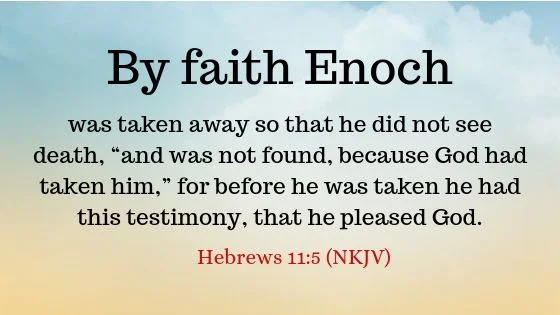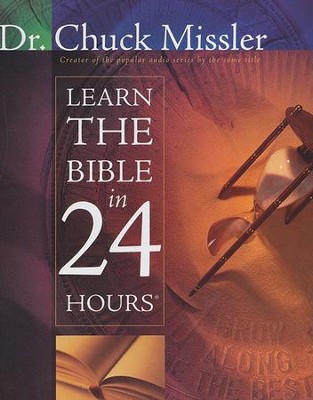
Updated: May 16, 2025
Genesis 5 often gets overlooked as “just” a genealogy—a list of names and ages tracing the descendants of Adam.
But a closer look reveals far more than a historical record. It unveils subtle but profound truths that point directly to God’s redemptive plan, long before the New Testament ever mentions it.
Could it be that hidden within these ancient names is a message of hope—a preview of the Gospel itself?
The First Genealogy in Scripture
Genesis 5 introduces “the written account of the descendants of Adam,” listing ten generations from Adam to Noah.
Interestingly, this mirrors the ten generations from Shem to Abraham found in Genesis 11:10–26. Genealogies in the Bible aren’t just historical documents—they carry theological significance.
In this case, the list of names from Adam to Noah carries a remarkable encoded message when the Hebrew meanings of the names are unpacked.
Methuselah: The Oldest Man Who Died Before His Father?
Among the names listed, Methuselah stands out. He is famous for being the oldest man in the Bible, living 969 years (Genesis 5:27). Yet surprisingly, he died before his father—how is that possible?
The answer lies in the unique story of his father, Enoch.
Enoch: The Man Who Didn’t Die

Enoch’s story is brief but powerful. Unlike the repeated phrase “and then he died” marking the end of each generation, Enoch’s record ends differently:
“And Enoch walked with God; and he was not, for God took him.” (Genesis 5:24)
According to Hebrews 11:5, it was “by faith” that Enoch was taken to heaven without experiencing death. He lived in a time of increasing wickedness, yet he chose to walk in close fellowship with God. Enoch’s faith wasn’t quiet or passive—Jude 14–15 tells us he boldly proclaimed judgment on the ungodly, offering one of the earliest prophecies in Scripture, foretelling Christ’s Second Coming:
“Behold, the Lord comes with ten thousands of His saints, to execute judgment on all…” (Jude 14–15)
Even before the flood, Enoch spoke of a coming judgment—a message still relevant today. His life stands as a model for believers who seek to remain faithful in a world that increasingly mirrors the days before the flood (see Genesis 6:5 and Philippians 2:15).
The Turning Point in Enoch’s Life: The Birth of Methuselah

“After he begot Methuselah, Enoch walked with God three hundred years.”
Why the sudden change after Methuselah’s birth?
Some scholars and Bible teachers, including Charles Spurgeon, suggest that fatherhood may have prompted Enoch to seek deeper fellowship with God in the face of a corrupt world.
Others speculate that God gave Enoch insight into future events—specifically the coming flood. Methuselah’s very name may support that idea.
What’s in a Name?
In Hebrew, names often carry deep meaning.
The name Methuselah appears to be formed from two roots:
- muth – meaning “death”
- shalach – meaning “to bring” or “to send forth”
Put together, Methuselah can be translated as: “his death shall bring.”
Many believe that this name prophetically indicated that the flood would not come until Methuselah died. And that’s exactly what happened: the flood came the very year Methuselah died. His long life was not random; it was a demonstration of God’s incredible patience and mercy, giving humanity more than nine centuries to repent.
A Gospel Message Hidden in the Names
If Methuselah’s name held prophetic meaning, could the same be true for the others in Genesis 5? By examining the original Hebrew meanings of the ten names, a stunning message appears:
- Adam – “man”
- Seth – “appointed”
- Enosh – “mortal” or “frail”
- Kenan – “sorrow” or “lament”
- Mahalalel – “the blessed God” (from mahalal = blessed, El = God)
- Jared – “shall come down”
- Enoch – “teaching”
- Methuselah – “his death shall bring”
- Lamech – “despairing”
- Noah – “comfort” or “rest”
When strung together, these meanings present a summary of the Gospel message:
“Man is appointed mortal sorrow; but the Blessed God shall come down, teaching that His death shall bring the despairing comfort.”
This is not a manipulation of text or numerology—it’s simply looking at the meanings of the Hebrew names in order. It’s an extraordinary pattern, woven into the text thousands of years before Christ.
Every Word by Design
This discovery supports a broader truth found throughout Scripture: every detail is there by divine design.
What may seem like a dry list of names is, in fact, a prophetic picture of redemption. This also shows that God’s plan of salvation wasn’t a reaction to Adam’s sin—it was ordained “before the foundation of the world” (Ephesians 1:4; Revelation 13:8).
The timing of the flood is also significant. It came the year Methuselah died, showing that his record-breaking lifespan wasn’t arbitrary. It was God’s mercy extended to a rebellious world.
The Reign of Death—and the Hope Beyond
Genesis 5 also repeatedly includes the phrase “and he died,” appearing eight times. This phrase underscores the tragic reality that death now ruled over humanity because of Adam’s sin (Romans 5:12–21). The genealogy in Genesis 5 isn’t just a record of life—it’s a grim reminder of the reign of death.
But there’s hope.
Romans 5:17 declares that:
“…through the one man Jesus Christ, we can live in triumph over sin and death.”
Jesus came to reverse the curse. What Genesis 5 hints at in seed form, the New Testament reveals in full: God’s plan to restore, redeem, and give life through Christ.
Are There Hidden Messages in the Bible?
Yes—but not in the speculative sense of secret codes or numerology. Rather, the Bible contains layers of meaning that reward diligent study.
Jesus said that “not the smallest letter, not the least stroke of a pen” would pass away from the Law until all is accomplished (Matthew 5:18). That level of precision implies purpose—even in genealogies.
As the late Chuck Missler often noted, “The Old Testament is the New Testament concealed; the New Testament is the Old Testament revealed.” The more we study both, the more clearly we see God’s unified message across Scripture.
Conclusion
Genesis 5 is far more than a lineage of ancient men. It’s a testament to God’s mercy, a foreshadowing of the Gospel, and a reminder that no part of Scripture is accidental. When we take time to examine the details, even in genealogies, we discover profound truths about who God is and what He has done for us through Jesus Christ.
So next time you encounter a genealogy, don’t skim it—study it. You might just find the Gospel hidden in plain sight.
Affiliate Disclaimer
This post contains affiliate links. If you click on one of the links and make a purchase, I may receive a small commission at no extra cost to you. I only recommend products I truly believe in and think will be beneficial to my readers. Thank you for supporting Biblical Christianity!
Reference:
📘Learn the Bible in 24 Hours
By Dr. Chuck Missler
If you’ve ever tried and struggled to study the entire Bible, Learn the Bible in 24 Hours offers a clear, engaging, and structured approach to understanding God’s Word from Genesis to Revelation—one hour at a time.
- Fresh, sound teaching on Scripture
- Historical and cultural context
- Key concepts highlighted for easy retention


Greetings,
I’m trying to reconcile how you came up with “Lament” for Lamech when Strongs says it’s from an unknown root with an unknown meaning.
Just curious.
Hi Corby, thanks for the thoughtful question!
You’re right that Strong’s Concordance lists Lamech (H3929) as coming from an unused root with an uncertain or unknown meaning, so it doesn’t give us a definitive translation by itself.
When some teachers suggest meanings like “lament,” “despairing,” or “low/depressed,” they’re not claiming that Strong’s proves that definition. Rather, they’re drawing on extra-lexical and comparative linguistic considerations (like possible Northwest Semitic or related roots, and how the name functions in context).
For example, some scholars propose connections to ideas of lowliness or sorrow based on similar roots and usage patterns.
So, in short:
✔️ Strong’s itself says the root meaning is uncertain.
✔️ What you’re seeing in some studies is an interpretative suggestion based on other linguistic and contextual clues rather than a clear Strong’s definition.
It’s fair to be cautious here. The Bible doesn’t give a single explicit meaning for Lamech. But exploring possible meanings can still be a helpful way to meditate on how the genealogy points toward God’s redemptive plan, even if the name’s etymology isn’t settled.
I didn’t find any of those meanings except Noah-which means, Rest
1. Adam = “Red”
2. Seth = “compensation
3. Enos -= “man”
4. Kenan = “Possession” KJV writes Cainan
5. Mahalaleel = “Praise of God”
6. Jared or Jared = “descent”
7. Enoch = “dedicated”
8. Methuselah- “Man of the dart”
9. Lamech- “Powerful”
10. Noah- “Rest”
Could someone please show me where it states that the names mean the same as in this article?
Hi Miranda, thanks for engaging with the post!
You’ve listed a set of traditional name meanings that many people have seen before (like Adam = “man,” Seth = “appointed,” Noah = “rest”). Those traditional meanings are based on Hebrew roots and how some commentators have interpreted them, and they do show up in lots of sources summarizing Genesis 5 names.
However, it’s important to understand a few things:
1. Not all meanings are certain.
For some names (like Lamech), Hebrew scholars simply don’t have a clear, universally accepted root or meaning, so older interpretations (like “powerful” or “lament/despair”) are suggestions rather than definitive translations.
2. Different sources give different possibilities.
Some lists tie Kenan to possession or sorrow, while others say the exact meaning of that, and a few others are uncertain. Similarly, Methuselah’s meaning is debated; sometimes rendered “man of the dart,” other times “his death shall bring.”
3. The list in the article wasn’t claiming a literal dictionary definition for every name, but was drawing on one of the traditional interpretive lists used by some teachers. Different scholars look at various root words or traditions when assigning these meanings.
So what you found (like Noah = “rest”) is absolutely one common set of traditional meanings. And the article is using another traditional interpretation that matches what many teachers have suggested over time. Neither should be treated as strictly biblical statements of meaning in the same way as clear translations like Adam = man or Noah = rest are.
Thanks again for your careful reading; it’s great to see people digging into these details!
Pretty amazing post.
Not only is this secret message revealed but excellent tangential explanations from the same genealogy are offered. The Old Testament is so rich.
Everyone drawn to Christ should make it their ambition to study it.
Thanks, John.
May we continue to read and meditate on the Word of God.
God bless you,
Too bad this isn’t true.
You just conjured the meaning of methuselah out of thin air. It actually means “man of the dart”.
So… your whole point falls apart with a few google searches.
Hi Kevin,
Thanks for your comment; I appreciate it.
You are right; Methuselah means “man of the dart.” But in Hebrew, it means “His death shall send.”
Next time you do Google search, you may want to dig a little more.
Blessings!
Well done.
Thanks, Vincent. 😊
I want to know how I can do my research, how can I know the basics?
Hey Fabrice,
Doing research and knowing the basics start with thoroughly studying the Scriptures. Having a reliable and trustworthy reference would be a great help.
Have a blessed day!
My brain doesn’t always keep up at the rate of everyone else’s and so I may be reading this wrong, but wouldn’t it make more sense that the Old Testament is the New Testament concealed and the New Testament is the Old Testament revealed, instead of the other way around?
You know what? You are right! My mistake ☺.
Had Perry Stone and Chuck Missler read this, they would have surely called me out, lol.
Yes, it should have been, “The Old Testament is the New Testament concealed and the New Testament is the Old Testament revealed.”
Thanks for the correction, God bless!
This love letter written to you is a living expression of His love. To comprehend it is to understand when it is speaking…and with what test does it show you. Fresh and new each time like a brand new hug.
Seek Him while you still can.
Hi Dolores,
Thank you for stopping by.
Indeed, the Bible is God’s love letter to us and we can only comprehend it with the help of the author Himself – the Holy Spirit.
The Word of the Lord, God’s message to us keeps our hope alive. Just like the mercy of God that is new every morning, His word brings us new encouragement day after day.
Blessings!